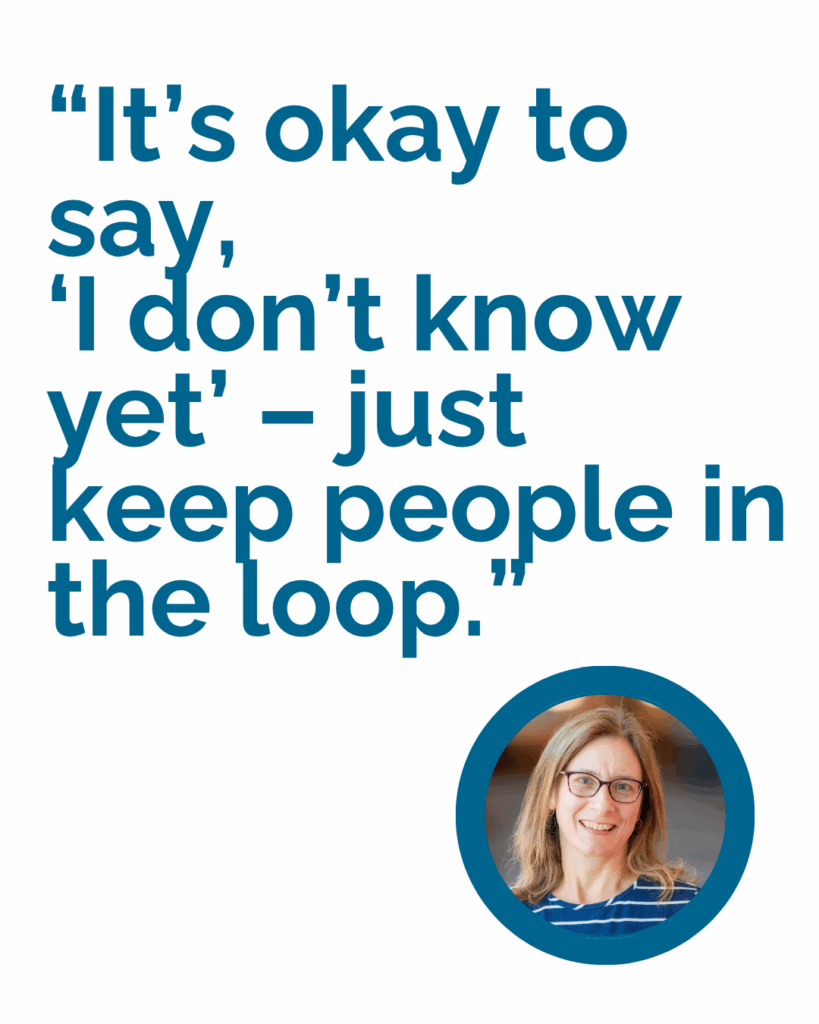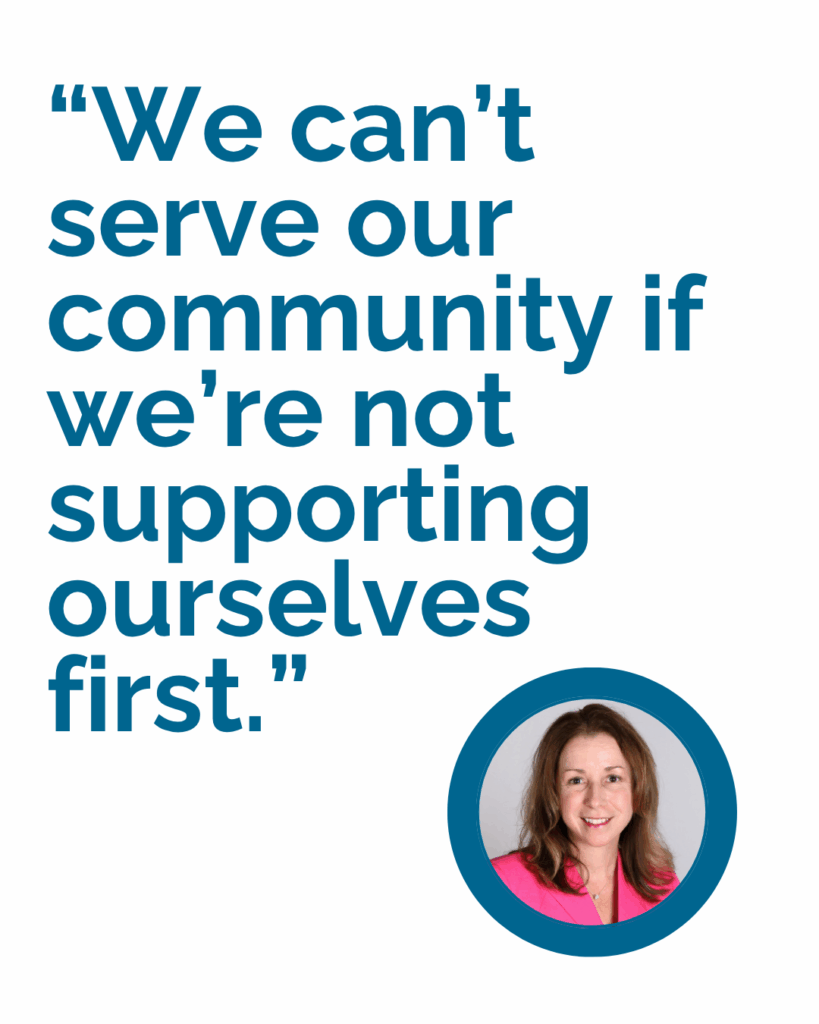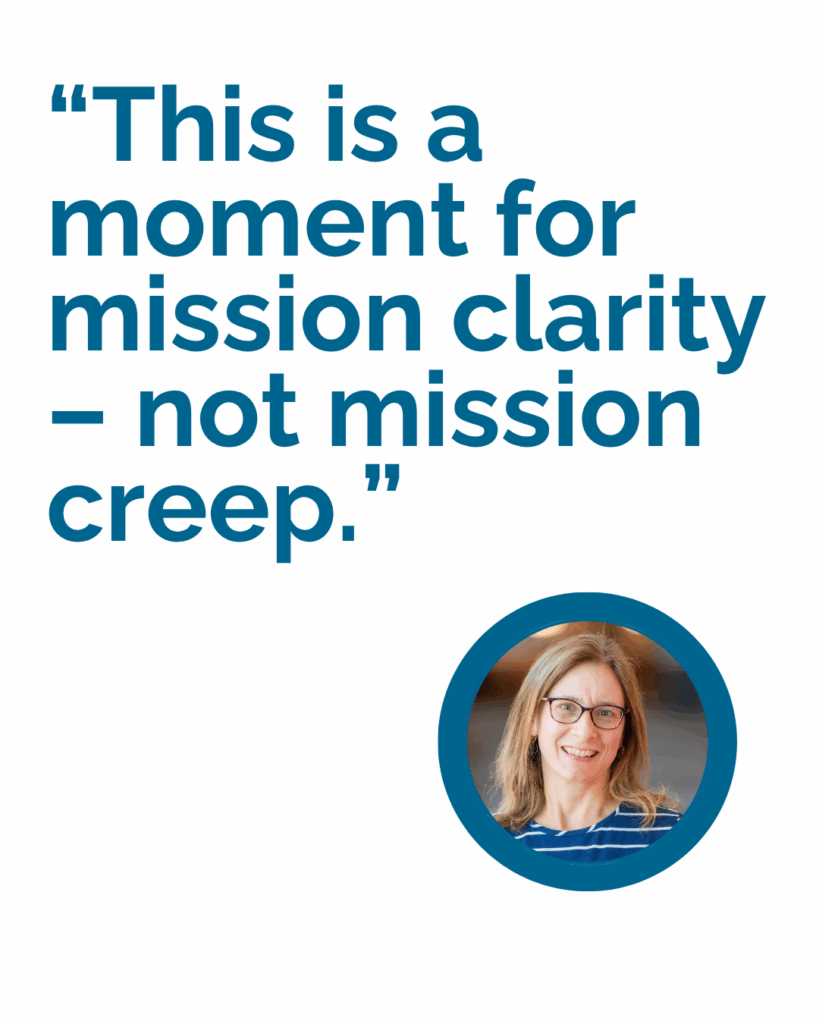Takeaways from Elevate’s Conversation Series: “Leadership in Challenging Times”
In a time of shifting funding priorities and operational stress, nonprofit leaders across the country are being asked to do more—with less certainty, fewer resources, and often, a heavier emotional load.
As part of Elevate’s 2025 Conversation Series on navigating funding uncertainty, our third and final session—Leadership in Challenging Times—brought together a powerful panel of nonprofit leaders who are living this reality every day. On March 27, 2025, we were joined by three leaders who shed light on what we can learn from challenges in the past and move forward strategically. Our panelists included Melanie Lockwood Herman, Executive Director of the Nonprofit Risk Management Center; Laura Rodgers, Chief Impact Officer for JFS in Atlantic & Cape May Counties in New Jersey; and Rebecca Parlakian, Senior Director of Programs at Zero to Three.
From managing burnout to staying mission-focused during cutbacks, these leaders shared real-world lessons that go beyond theory and into practice.
Here are three key insights we took away from the discussion:
1. Be Transparent—Even When the Answers Aren’t Clear
One of the biggest themes to emerge throughout our discussion was the importance of clear, consistent communication with staff and stakeholders—even when outcomes are uncertain.
Laura Rodgers described how her team shifted internal communication norms during COVID-19 and has continued that practice through today’s challenges. Weekly email updates became a staple—keeping staff informed, aligned, and valued.
Meanwhile, Rebecca Parlakian noted how frequent communication builds trust with funders and helps to manage expectations during shifting program needs.
“It’s okay to say, ‘I don’t know yet’ — just keep people in the loop.”
In other words, transparency in communication doesn’t require having all the answers. It does require being honest about what’s known, what’s evolving, and what’s still to be figured out.
2. Prioritize Staff Well-Being Like It’s Mission-Critical—Because It Is
In the nonprofit world, burnout isn’t just a buzzword. It’s an organizational risk.
Melanie Herman reminded attendees that people are any organization’s most valuable asset—and also its most vulnerable.
Panelists discussed how they are:
- Offering flexible scheduling and time-off policies,
- Creating space for rest without guilt, and
- Setting clearer boundaries around workload and urgency.
Rodgers even described intentionally slowing the pace of meetings and internal decision-making, signaling to staff that it’s okay not to be in constant “crisis mode.”
“We can’t serve our community if we’re not supporting ourselves first.”
For more on how nonprofits can take action during turbulent times, check out our related blog post: 4 Things Nonprofits Can Do Now, to Better Adapt to Uncertainty
3. Shift the Frame from ‘Loss’ to ‘Learning’
As funding fluctuates and programs change, it’s easy to fall into a scarcity mindset. But all three panelists emphasized reframing as a leadership tool.
Instead of focusing on what’s being lost – whether that’s funding, programs, or metrics – leaders are helping their teams ask:
- What have we learned from this transition?
- What do we want to carry forward?
- How can we build back better—not just bigger?
Parlakian shared how her team used program changes as an opportunity to realign work more closely with community needs. In other words: constraint became a catalyst for innovation.
“This is a moment for mission clarity—not mission creep.”
Final Thought: There’s No Playbook, But There Are Peers
If there’s one thing that came through clearly during this conversation, it’s that no nonprofit leader is alone in feeling the weight of this moment.
Whether you’re making tough calls about the future of your organization or its programs, supporting exhausted staff, or navigating uncertainty with your board, there’s strength in shared experience. There’s wisdom in the field.
And there’s value in creating space—for listening, for adjusting, and for leading with care.
Additional Resources
Explore other resources and insights from the Navigating Uncertainty series:
 Raquel Braemer
Raquel Braemer
Associate Vice President of Continuous Improvement
Website Bio













 Raquel Braemer
Raquel Braemer



